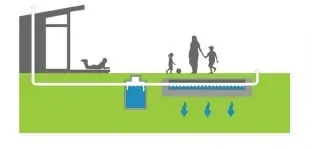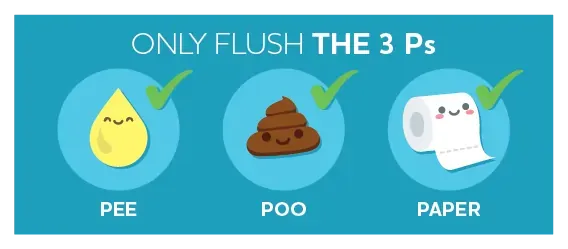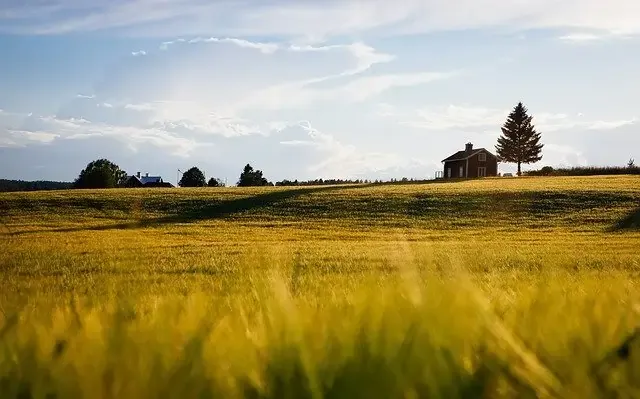Best off-grid Septic Systems
When you live in an area that requires a septic system it's important to know which one will best suit your needs, property and comply with the local regulations.When you are not connected to the city sewerage system an off-grid septic system does the same as a city sewerage system by using safe, natural methods without removing the waste from your property. While city sewerage collects all of your wastewater, off-grid systems often separate it into two types. These are greywater which comes from sinks, washing machines, and showers, and blackwater which is from toilets.
Off-grid Septic System Explained
A septic system is a wastewater treatment system, which is made up of a septic tank, typically made from plastic and a drain field also called a leach field. This system works by initially sending wastewater to the septic tank for preliminary treatment. Then, the liquid effluent flows from the tank into the drain field, where it undergoes further filtration and treatment through soil and natural processes. Once this process is completed it is safely returned to the groundwater.

Key Factors to Guide Your Decision-Making Process
Before investing in an off-grid septic system, it's important to look at a few factors, regarding your immediate situation and requirements. These factors include
- Water Usage - Composting toilets and greywater systems are good for reducing water consumption.
- Local regulations - Depend on your location and local principality, they aim it ensure that off-grid wastewater systems are safe, enviromentlayy friendly and meet public health standards.
- Soil and Site Conditions - If you have poor soil or limited space, you may need to consider mound systems, aerobic systems, or constructed wetlands.
- Maintenance - Aerobic treatment systems and composting toilets require more regular attention than traditional septic systems.
- Environmental Impact - Composting toilets and greywater systems are more eco-friendly compared to conventional septic systems, which can have a larger environmental footprint if not properly maintained.
Types of Off-grid Septic System
The best system for you will depend on your location, the environmental conditions, and the level of maintenance you're comfortable with. If you're looking for low-maintenance and cost-effective options, a conventional septic system might work best, but for more sustainable and water-saving choices, a composting toilet or aerobic treatment system could be ideal.
-
Greywater Recycling System
Off-grid homeowners with extensive outdoor space for irrigation will benefit from a greywater recycling system. By using wastewater from sinks, showers, and washing machines to irrigate landscaping or gardens and reducing the burden on a septic system.This water recycling system captures greywater from the household drains before it enters the main system. Therefore it reduces the volume of wastewater that enters the septic system which in turn will make it more efficient. The recycled water is then distributed for reuse via dedicated pipes and outlets.
-
Conventional Septic System with a Leach Field
This is the most common type of off-grid septic system, it is reliable, cost-effective, and relatively simple to install, but requires sufficient land and good soil drainage. Wastewater flows into a septic tank where solids settle. The liquid effluent is then directed into a leach/drain field where it’s naturally filtered through soil. This system is ideal for areas with well-draining soil and sufficient space. Regular maintenance is essential to ensure your system stays efficient and in good working condition. Enlisting the services of a professional for regular tank pumping and checking that the drain field to ensure it is not clogged
-
Composting Toilet System
Perfect for smaller homes or cabins where water is scarce, and there's limited space for traditional septic systems, and often used for eco-friendly off-grid living. This system requires minimal maintenance and can substantially reduce environmental impact. Composting toilets process human waste without the need for water, turning waste into compost, some include a small holding tank or container for liquid waste. It is important to pay attention to the composting process to ensure it is effectively working

-
Mound System
A mound system is the perfect option for properties with limited space or poor soil conditions. It is a variation of the conventional septic system where the drain field is elevated above the natural ground level, often built in areas with shallow soil, challenging terrain, high water tables, or poor soil conditions. Mound systems are typically a more expensive option that requires regular maintenance.
-
Aerobic Treatment Units (ATUs)
If you reside in an area with poor soil conditions or high water tables where a traditional system may not work, this is the system for you. An aerobic septic system uses oxygen to accelerate the breakdown of organic waste. The treatment is more efficient and cleaner than conventional septic and can handle a variety of waste types. In some instances, the tanks may include a small pump to circulate air into the tank. Overall an ATU tends to be more complex and expensive to install and maintain, requiring electricity to run the aeration process.

-
Constructed Wetland System
If you are an Eco-conscious off-grid homeowner on a large block of land a constructed wetland system is the perfect choice for you. This system utilises plants, soil, and microorganisms to filter wastewater. Which then flows through gravel beds and is treated naturally by plant roots and microbes. It's pleasantly sustainable, very low maintenance, and above all else eco-friendly. It does however require ample space and if you are on a tight budget can be an expensive option to have installed.
Resources & Further Reading:
Wastewater | Environment | Department of the Environment, Tourism, Science and Innovation, Queensland
How Does a Septic System Work?
HomeBiogas - What is an off-grid toilet?
Ecosafe - Acreage Sewage System